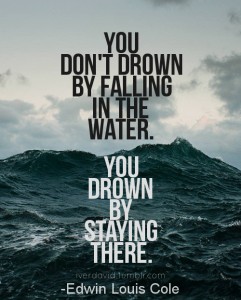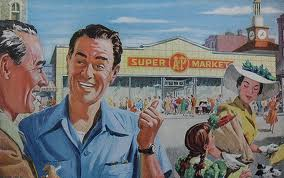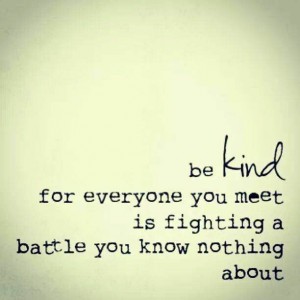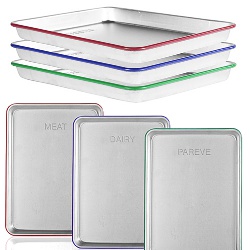My neighborhood in Chicago is home to many people, like myself, who are Kosher consumers. As a Jewish family we strictly follow the Jewish dietary laws about what we eat (and how we eat it). There are several exclusively Kosher grocery stores/bodegas establishments in our area and, of course, two major chain affiliated supermarkets. We have Jewel-Osco (which is owned by Albertsons) and Dominick’s (which is owned by Safeway). Almost ten years ago, the Jewel-Osco store made a major investment (following the model of other Albertsons and Acme stores) and made a “Kosher marketplace” that includes a Kosher Chinese take-out restaurant, Tein Li Chow, a bakery, deli counter, fish counter, extensive frozen food, dry goods aisles, and vast wine department all under Kosher supervision. Most will agree that it was an investment that has and will continue to pay off for the store.
Meanwhile, just about 1 1/2 miles away is the Dominick’s store. While Safeway wasn’t willing to invest in a deli, fish, or wine department exclusively Kosher, they did try to expand their frozen foods and dry goods volume into one massive and fairly well stocked aisle. I am sure some die-hard Dominick’s fans stayed loyal, but with the amenities for the Kosher consumer at Jewel combined with Albertsons’ buying power, Dominick’s did lose some business (along with most of the independent Kosher grocery stores).
About a month ago, the Dominick’s store got a new manager. He sized up the Kosher competition very quickly and made a very calculated and somewhat radical move. He reduced the amount of frozen and dry goods Kosher products in the store. He moved his now condensed Kosher dry goods into the front of the store in an easy to navigate double sided aisle and then put other ethnic and imported foods next to them, as an “international marketplace” area. If you enter the store from the South entrance it’s hard not miss the Kosher items. Again, not such a massive selection, but it’s uber-easy to find items and saves time. I complimented him on the smart move and said that most of the Kosher customers that have stuck with Dominick’s know exactly what items they need and this will save them time. He agreed and said that this new configuration was the first thing he wanted to do when he took over the store.
I grew up with the idea from pop culture that, “If you can’t beat them…join them.” This idea has fueled commercial competition in technology, TV shows on competing networks, the music and film industry, food and beverages, book publishers, etc. It seems everywhere we look we people are competing with others. Dominick’s took a different route, one that allowed them to focus their efforts on the strengths within their store. This is a great life lesson.
From time to time I find myself comparing what my own community/job/friendships/cell phone has to offer and what it seems to be missing when compared with an alternative. Sometimes my narrow vision is so fixated on what I believe I am missing to the point of it being debilitating. The lesson for me is to accept that you can’t always beat them or join them. The only viable option is to move on, accentuate the strengths, and focus on being the best that you can be.
Since you are still reading, please check out the great article on Copyblogger titled, “5 Reasons You Should Embrace Rejection“.
 I was in the process of transcribing the story below that Rav Moshe Weinberger gave on Shabbos Bereishis (and repeated here from a shiur at YU) and, Baruch Hashem, Dixie Yid posted the official drasha based on Rav Weinberger’s notes. I was zoche to be in Woodmere for Simchas Torah and heard the drasha on Shabbos. When I heard the story below, I immediately knew that it was something that was going to stay with me for a long, long time and be something that hovers over me. I am pleased to share the story, as posted by Dixie Yid, below. Please click on the story to read the entire drasha.
I was in the process of transcribing the story below that Rav Moshe Weinberger gave on Shabbos Bereishis (and repeated here from a shiur at YU) and, Baruch Hashem, Dixie Yid posted the official drasha based on Rav Weinberger’s notes. I was zoche to be in Woodmere for Simchas Torah and heard the drasha on Shabbos. When I heard the story below, I immediately knew that it was something that was going to stay with me for a long, long time and be something that hovers over me. I am pleased to share the story, as posted by Dixie Yid, below. Please click on the story to read the entire drasha.








